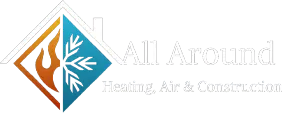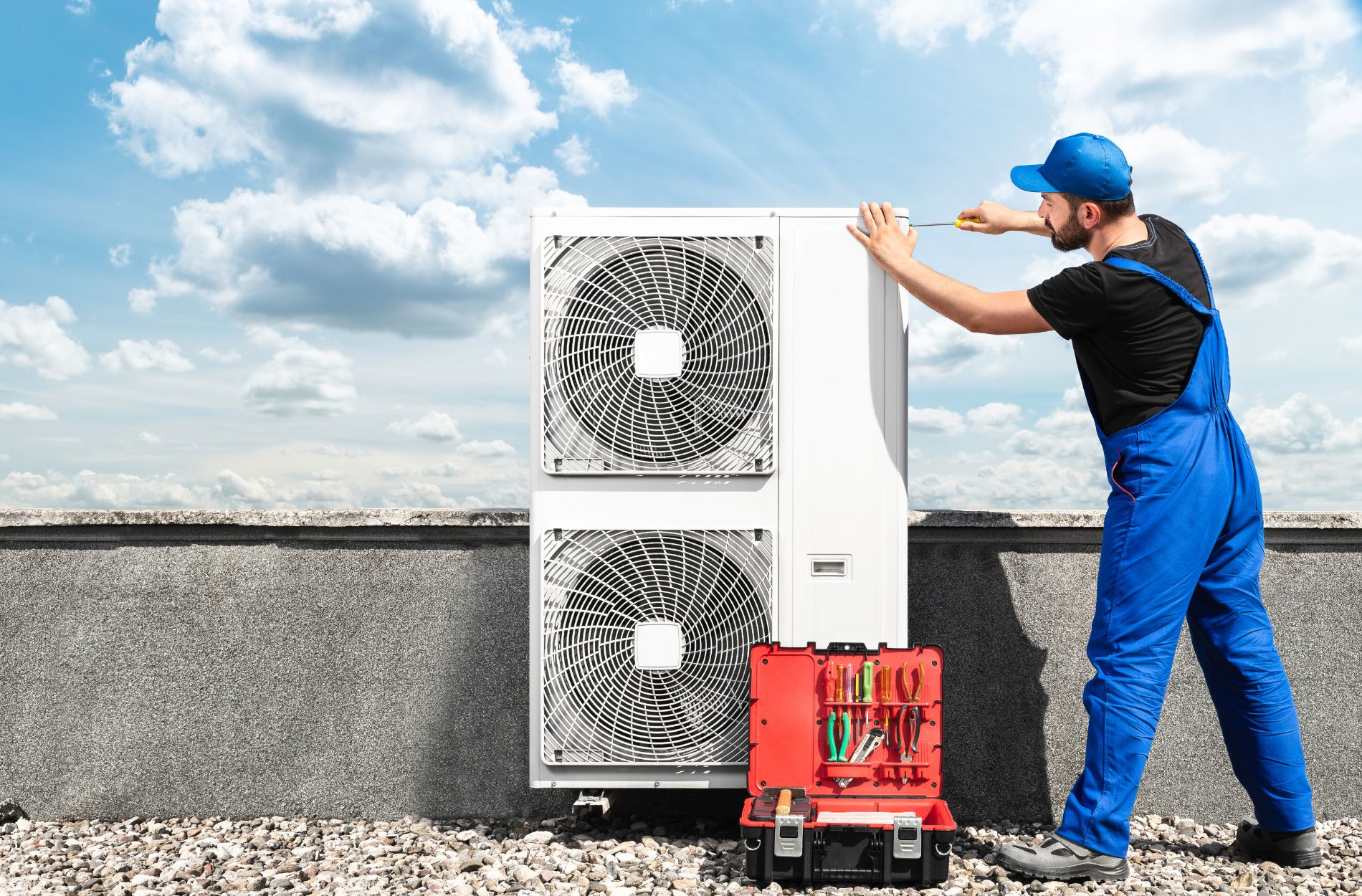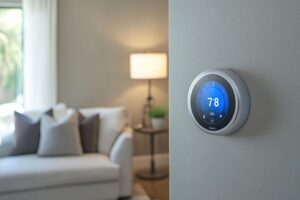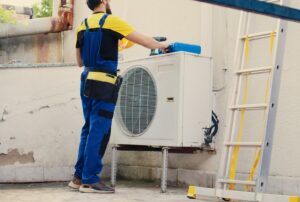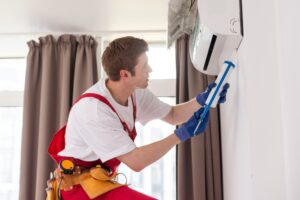When your air conditioner suddenly stops working during the middle of a hot day, it can throw your entire routine off. Losing cool air during a Chico summer isn’t just uncomfortable—it can make your home feel unusable, especially if the air feels humid and stagnant. If your system goes silent without warning, it helps to know what steps to take before panic sets in. While some issues are minor and can be corrected quickly, others may need a professional’s help. Either way, acting fast can prevent more damage and stress.
No one wants to deal with extreme indoor heat when relief should be just a thermostat click away. But before assuming the worst, it’s important to do some basic checks. A few simple tasks might identify the issue or narrow down the cause. Whether you’re dealing with a thermostat glitch or a more serious system failure, knowing where to start will help you decide what can wait and what can’t.
Steps To Diagnose the Problem
Before calling for help, start with an at-home check of your AC system’s most common trouble spots. These quick tasks can save time and even fix some minor issues:
1. Check the thermostat settings
Make sure the thermostat is set to “cool” and that the target temperature is lower than the current room temperature. Thermostat settings can get changed accidentally, especially with programmable models or if battery levels are low. Try adjusting the temperature a few degrees cooler to see if the system turns on after a moment.
2. Inspect the circuit breaker
Sometimes the unit trips the breaker after a power fluctuation. Head to your home’s breaker panel and look for the circuit labeled for HVAC or AC. If the switch is flipped to the middle or off position, reset it by turning it fully off and then back on again. If this happens repeatedly, stop resetting the breaker and seek help.
3. Check the air filter
Dirty or clogged air filters restrict airflow. When filters are full of dust and debris, it’s harder for air to move through the system, causing lower performance and sometimes even shutdowns. Slide the filter out and check it for grime. If it looks gray or has a thick coating of dust, replace it with a clean one and try restarting your system.
Sometimes, these steps make a difference and the unit starts blowing cool air again. For example, one homeowner in Chico realized their air stopped working due to a clogged filter. After replacing it, the system kicked on about fifteen minutes later and resumed cooling the house normally. While this fix worked that time, it highlighted how quickly overlooked maintenance can lead to shutdowns.
If these checks don’t lead to improvement, it’s best to move to the next phase: getting the unit stable and ready for a more thorough inspection.
Immediate Actions To Take
When your AC unit fails and simple checks don’t fix it, don’t keep running the system in hopes it will improve. That approach can lead to bigger problems. To protect your equipment and avoid worsening the issue, follow these steps:
Turn off the system at the thermostat
If the unit is struggling, making loud noises, or blowing warm air, switch it off. Continued operation can apply pressure to the compressor and internal components, especially if there’s a refrigerant or airflow issue.
Inspect the outdoor unit
Look for any visible blockages like branches, dirt buildup, or other debris around the condenser unit. Leave at least two feet of space clear around it so the system can breathe. Overgrowth or debris can trap heat and force the system to overwork.
Open all vents and check airflow paths
Supply and return vents should be open and clear of furniture, rugs, or curtains. Blockages here can reduce circulation and prevent efficient cooling. Walk through your home and double-check each vent even if you rarely use that room.
Handling these steps right away helps prevent unnecessary wear on your AC system and puts you in a stronger position when it’s time to call in experts. If the AC still doesn’t work after taking these actions, there’s likely a more serious issue at play. The next step involves knowing when to bring in our technicians—and making that decision quickly can make all the difference.
When To Call Our Professionals
If your attempts to get the AC running again haven’t worked, it’s time to bring in experienced help. There are clear warning signs that the issue may go beyond what you can address on your own. When your system is making loud grinding or buzzing noises, giving off odd smells, or stays completely unresponsive after all your checks, those are red flags. These conditions usually point to internal failures, electrical issues, or low refrigerant levels, which require special tools and licensed technicians to resolve.
Another situation to watch for is inconsistent airflow between rooms. If only some areas of your home are cooling, or the air pressure feels uneven, there may be a duct issue or a failing part in the indoor unit. Systems that turn on briefly before shutting back off can also point to short cycling caused by sizing mismatches, temperature sensor failures, or more complicated internal faults. Ignoring those signs often leads to extended breakdowns or long-term system damage.
The key is knowing when a delay could cost you more in terms of both comfort and repair. Chico summers aren’t forgiving, and a non-functioning air conditioner can make your space stressful, especially for kids, older adults, or family members with health conditions. When the system isn’t running right and you’ve done your part to check the basics, it’s best to stop troubleshooting and schedule help from our professionals. Waiting too long to act could turn a smaller repair into a full system replacement.
Preventive Maintenance Tips For Long-Term AC Performance
Emergency AC problems in Chico are sometimes avoidable with a few preventative habits. While not every breakdown can be predicted, regular system care does reduce the chances of a sudden outage. These are the simplest practices homeowners can stay on top of throughout the summer:
– Replace air filters every 1 to 3 months. This keeps airflow strong and reduces the strain on your system.
– Clear dirt, grass, and nearby clutter around outdoor units. A two-foot clearance gives the condenser enough room to release heat properly.
– Schedule seasonal HVAC inspections. Having your AC checked before peak cooling begins helps catch problems early and keeps your system running more efficiently.
– Watch for rising utility bills. A sudden increase might signal an airflow problem, making it worth asking our technicians to investigate.
– Keep an eye on the thermostat; recalibrate settings if your home feels warmer than it should.
Following these habits helps your system perform better over time, keeps indoor comfort steady, and reduces the risk of emergency calls during the hottest weeks of the year.
Restoring Comfort In Chico’s Summer Heat
When your AC stops working, knowing where to begin makes the difference between restoring comfort quickly and spending too long without relief. Starting with thermostat and filter checks helps weed out common issues without delay. If those steps don’t fix the problem, immediate actions like shutting the system off and inspecting the outdoor unit can prevent further damage.
It’s just as important to know when it’s time to hand things over to trained professionals. Once signs point to deeper issues, prompt service protects your system and gives you peace of mind. And with a few year-round maintenance habits, you can lower the chances of this kind of disruption happening again when the heat in Chico reaches its peak. Repair needs won’t always give warning, but being prepared puts you in control of the outcome.
When home cooling becomes urgent and you need immediate assistance, trusting experienced professionals is key. If you suspect a fault that requires air conditioner repair in Chico, our professionals can assess and address the issue quickly to restore your comfort. For a prompt estimate or to book a service visit, please contact us today.
